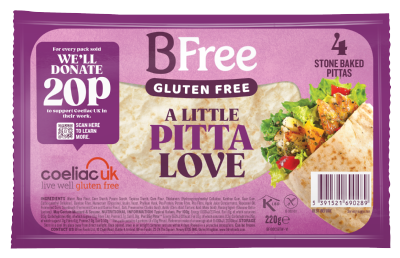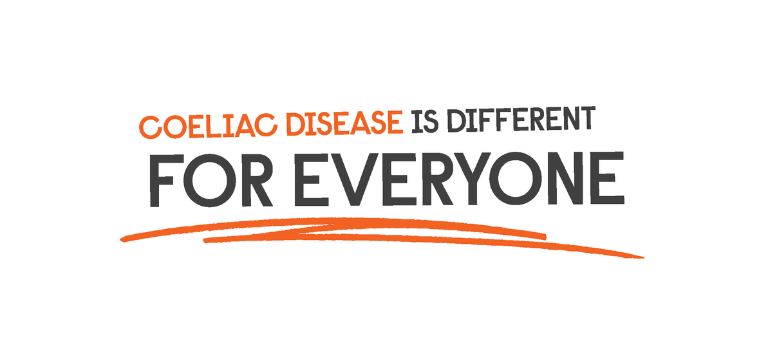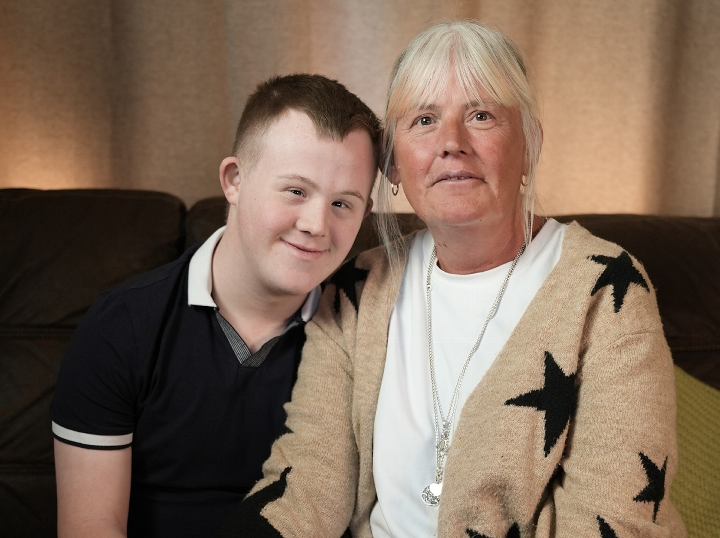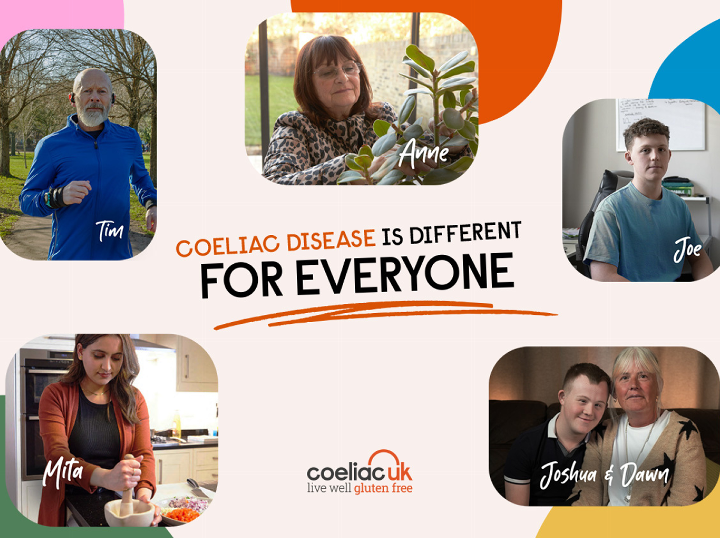Coeliac Awareness Month
1 in 100 people in the UK have coeliac disease, but only 36% are diagnosed. That leaves a staggering 500,000 people suffering with unexplained symptoms. Our campaign for Coeliac Awareness Month 2024 aims to find those people and get them on the road to recovery. Find out how, and what you can do to help.
Coeliac disease is different for everyone – not only in the wide range of symptoms that can be experienced, but in the strain caused by living with unexplained health problems. Not knowing what’s wrong can have a significant effect on mental and physical health. So, for the whole month of May we’re spreading the word about coeliac disease and the emotional journey of diagnosis. We want to raise awareness that once people know what they’re dealing with, there’s a sense of relief that they can now get on the road to recovery. The first step is to take our free online self-assessment ‘is it coeliac disease?’ to see if you should be tested. Find out more below.
 To reach as many people as we can we have lots of activity running throughout May: everything from raising general awareness of coeliac disease in press and on social media, to advice on gluten free living, and a Facebook live cookalong with our Ambassador Becky Excell. Plus, there will be two giveaways every week for the whole month. AND for the first time ever, there’s an on pack fundraising activity being run by one of our Crossed Grain certified brand partners. For the month of May for every pack of BFree’s stone baked pitta breads sold, 20p will be donated to Coeliac UK.
To reach as many people as we can we have lots of activity running throughout May: everything from raising general awareness of coeliac disease in press and on social media, to advice on gluten free living, and a Facebook live cookalong with our Ambassador Becky Excell. Plus, there will be two giveaways every week for the whole month. AND for the first time ever, there’s an on pack fundraising activity being run by one of our Crossed Grain certified brand partners. For the month of May for every pack of BFree’s stone baked pitta breads sold, 20p will be donated to Coeliac UK.
#CoeliacStories
For our 2024 campaign we’re shining the spotlight on five amazing case studies: Mita, Anne, Joshua (and his mum Dawn), Joshua’s brother Joe, and Tim. They all had unique experiences before their diagnosis of coeliac disease, which they bravely shared with us. Watch their videos to find out more about them and their experiences.
How to get involved
There are lots of ways to get involved. Here are just a few examples of how you can make a difference:
 Use our twibbon to change your profile picture on social media to show you’re supporting Coeliac Awareness Month. Use our social media template to share your own experience – use #CoeliacStories in your posts and don’t forget to tag us!
Use our twibbon to change your profile picture on social media to show you’re supporting Coeliac Awareness Month. Use our social media template to share your own experience – use #CoeliacStories in your posts and don’t forget to tag us!- Why not set up an event in your local area? Sign up for a pack and get: Posters x 2, leaflets x 10 and postcards x 20 including a QR code to direct people straight to the self-assessment page
- Get to meet other people with coeliac disease, or parents of children with coeliac disease in your area. Find out what our amazing volunteers have planned for Awareness Month and beyond.
- If you want to do some fundraising for Coeliac UK, you can get everything you need from our Fundraising pack. Thank you!
And there’s loads more – see below for information on our Facebook live and the giveaways being run throughout May.
Should I be tested for coeliac disease?
The symptoms of coeliac disease are wide ranging, sometimes making it harder to spot. If you’re consistently experiencing any of the symptoms below, then take our online self-assessment and see if you should be tested. The assessment asks a series of questions based on the NICE guidelines for diagnosis of coeliac disease and gives a recommendation of whether you should go to your GP for a simple blood test. When you’ve completed the assessment, if you should be tested it gives you a letter to take to your GP.
- severe or occasional diarrhoea, excessive wind and/or constipation
- persistent or unexplained nausea and vomiting
- recurrent stomach pain, cramping or bloating
- any combination of iron, vitamin B12 or folic acid deficiency
- anaemia
- tiredness
- sudden or unexpected weight loss (but not in all cases)
- mouth ulcers
- skin rash (dermatitis herpetiformis)
- tooth enamel problems
- liver abnormalities
- unexplained subfertility (male and female)
- repeated miscarriages
- osteopenia or osteoporosis
- neurological (nerve) problems such as ataxia (loss of coordination, poor balance) and peripheral neuropathy (numbness and tingling in the hands and feet)
There are also a number of conditions associated with coeliac disease including autoimmune thyroid disease, type 1 diabetes, Down’s syndrome and Turner syndrome. If you have any of these conditions, you should be considered for testing for coeliac disease.
There's also a genetic link. Where 1 in 100 people have coeliac disease in the general population, if your close relative has it that changes to in 10. If someone in the family gets a positive diagnosis, the immediate family should also be tested.





